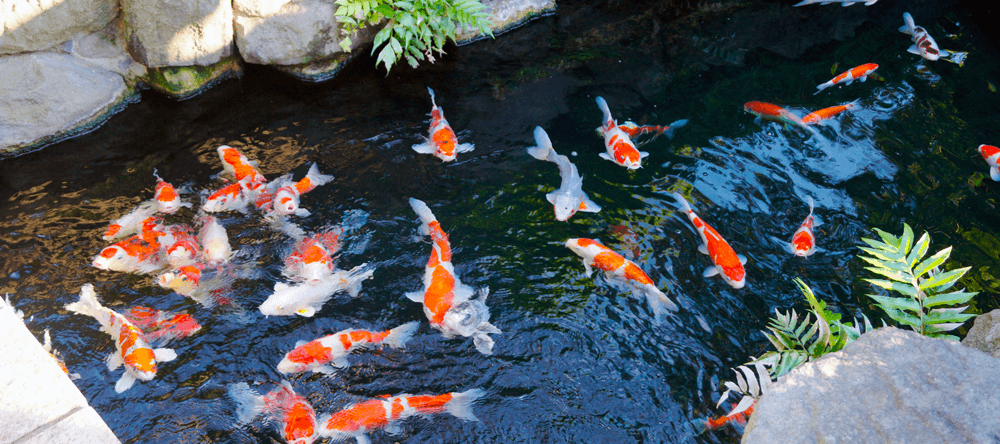My fish
Fish health: how to care for them?

Mucus: a natural shield for fish health
Nature has a way of doing things, because our fish have a powerful weapon: their mucus. This is their first protective barrier. A real shield, even before their immune system.
Have you ever seen fish scratching against the bottom or sides of your pond when the quality of your water is disturbed? If the water is high in ammonia, for example, your fish will become irritated and need to rub themselves to relieve the problem. This behaviour is not recommended, however, as scratching will remove their protective layer of precious mucus and make them more vulnerable.
Eliminate all sources of stress as a preventive measure
The truth is, anything that can be a source of stress will tend to cause the same behaviour. Remember that in spring, sudden changes in temperature can also cause a lot of stress in your little protégés. However, we want them to be healthy.
There’s no secret about it: the healthier the water your fish live in, the less stressed they will be. When we talk about ‘healthy water’, we are talking about a number of parameters such as :
- The number of fish in your pond.
- The food you choose, adapted to the seasons and the specific needs of your fish.
By paying close attention to these two factors, they will inevitably display less aggression, relieving stresss. The rest you already know: the less stressed they are, the better they will preserve their protective mucus and, therefore, the healthier they will remain. The goal is to create a virtuous cycle to support their well-being and boost their immunity.
My koi are sick, what should I do?
Diseases don’t spare fish. Have you noticed that they’re sick, or worse, that some fish are staying on the surface? It’s already a bit late… It’s better to adopt preventive measures than curative ones. As with humans, the proverb “an ounce of prevention is worth a pound of cure” also applies to fish.
What diseases can my fish contract?
The fish in your pond can contract different types of diseases: viral, bacterial, parasitic or fungal. Taking care of them also means maintaining their health!
Have your fish contracted parasites or a fungus? This could be due to your water quality. Has a heron landed near your pond and injured one of your koi? This could lead to infection. Be careful, if one of your fish gets sick, it can become contagious and infect the other inhabitants of your pond. Quarantining it can be the first step toward a solution.
Whatever happens, if you notice a problem, it must be treated as quickly as possible to avoid disaster. However, don’t rush into medication without knowing exactly what’s wrong with your fish. You don’t want to make the situation worse.
We therefore recommend performing a microscopic analysis of the sick fish so that the disease can be treated appropriately with the right product. This is also an opportunity to analyse your water, so that you can fully understand all its parameters.
How do I take care of my fish?
Favour a preventive rather than curative approach. Taking care of the health of your fish means acting rather than reacting. As we have already explained, it is better to anticipate than to quickly find a solution. It’s just like with humans. To protect ourselves from disease and boost our immune system, we take a series of vitamins to stay healthy for as long as possible. It’s not infallible, but it can help.
So why not adopt the same principle for the health of our fish?
Preventative: increase fish resistance with lactic acid bacteria (probiotics). We recommend Lactopond Health, a probiotic-based preparation to care for your fish and increase their resistance to disease.
It prevents attack by pathogenic bacteria and is ideal for treating wounds. A true healing accelerator, it increases the immunity of fish and also stimulates their digestive system. Enough to re-arm your little ones.
What to remember?
In conclusion, to take care of your fish, you must pay attention to their health. This requires regular observation so that you can take preventive action. Thus, while for humans, we recommend “a healthy mind in a healthy body,” for fish, we should talk about “healthy fish in healthy water.”